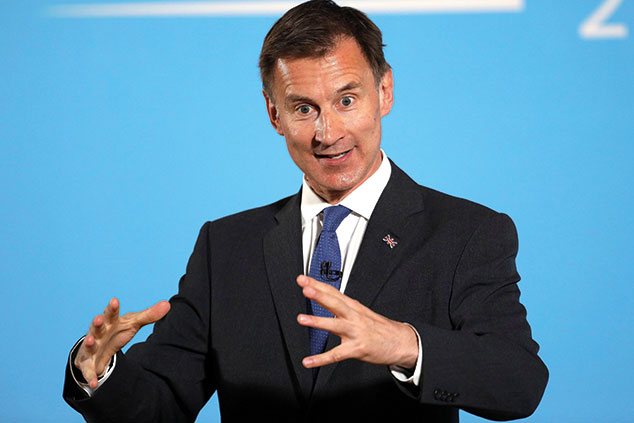
Now that the Tory leadership contest is entering a decisive phase, it is “turning into a battle over who can sound more macho”, says James Blitz in the Financial Times. Boris Johnson says he will take Britain out of the EU – “do or die” – by 31 October. Jeremy Hunt is now trying to sound “even more Eurosceptic”. A month ago, he was saying, sensibly, that he would aim for a revised deal by the deadline, but was open to extending it if necessary. He said no deal was “political suicide” because of the impossibility of getting it through the House of Commons.
This week, however, he no longer appears to view no deal as a “last resort” and has “come up with a ten-point plan to implement no deal as successfully as possible”. He has also said that he is willing, albeit with a “heavy heart”, to tell business owners they should be “prepared to go bust to ensure a no-deal Brexit”.
No majority for no deal
All this is, allegedly, in the name of democracy, says Rachel Sylvester in The Times. However, both he and Johnson are thinking only of the 160,000 Tory party members who will choose the new party leader over the next three weeks, not the majority of voters or MPs. According to the latest YouGov poll, just 28% of voters favour a no-deal Brexit. Nor was no deal what people voted for. In the run-up to the 2016 referendum, the official Vote Leave campaign “ruled out a no-deal Brexit”, with one leaflet stating, “taking back control is a careful change, not a sudden stop”. Another briefing paper stressed that, in the event of a Leave result, there would be a “new UK-EU treaty based on free trade and friendly co-operation”. At the 2017 general election, the Tory manifesto promised a “smooth, orderly Brexit”. And, of course, Parliament has “rejected a no-deal departure and would do so again”. It is “extraordinary” that the Eurosceptics, who “once waxed lyrical about Parliamentary sovereignty, are now seriously discussing suspending the House of Commons to overcome MPs’ opposition to leaving the EU on 31 October”.
As the chancellor, Philip Hammond, “looks on aghast”, Hunt and Johnson are also spraying money at us, says Polly Toynbee in The Guardian. Hunt has proposed £6bn to compensate farmers and fisherman for no-deal tariffs – “needless costs when the Brexiters promised frictionless trade”. He has also pledged to cut corporation tax to 12.5% at a estimated cost of £13bn, to boost defence spending by £15bn a year and to cut the interest on student debt.
Johnson, meanwhile, would scrap public-sector pay freezes, lift the National Insurance and higher-rate income-tax thresholds as well as increase spending on the police, social care and roads. The Institute for Fiscal Studies has estimated that Johnson’s plans could cost £25bn-£30bn a year; Hunt’s up to £46bn. If delivered, such commitments would put him on a par with Labour, which said in its 2017 election manifesto that it would increase spending by £48.6bn to reverse austerity, says Jess Shankleman on Bloomberg.
Labour “made hay with the growing criticism” of the pair’s spending promises, accusing them of “reckless spending commitments,” says Rob Merrick in The Independent. Fiscal rules require that the structural budget deficit is no more than 2% of GDP in 2020-2021. It is forecast to come in £26.6bn below the ceiling, but a no-deal Brexit could “wipe out” that margin and Hammond fears that the sacrifices of years of austerity could now be squandered. Speaking this week, he cautioned that after all the hard work to rebuild our public finances, it’s “very important that we don’t throw that away”.